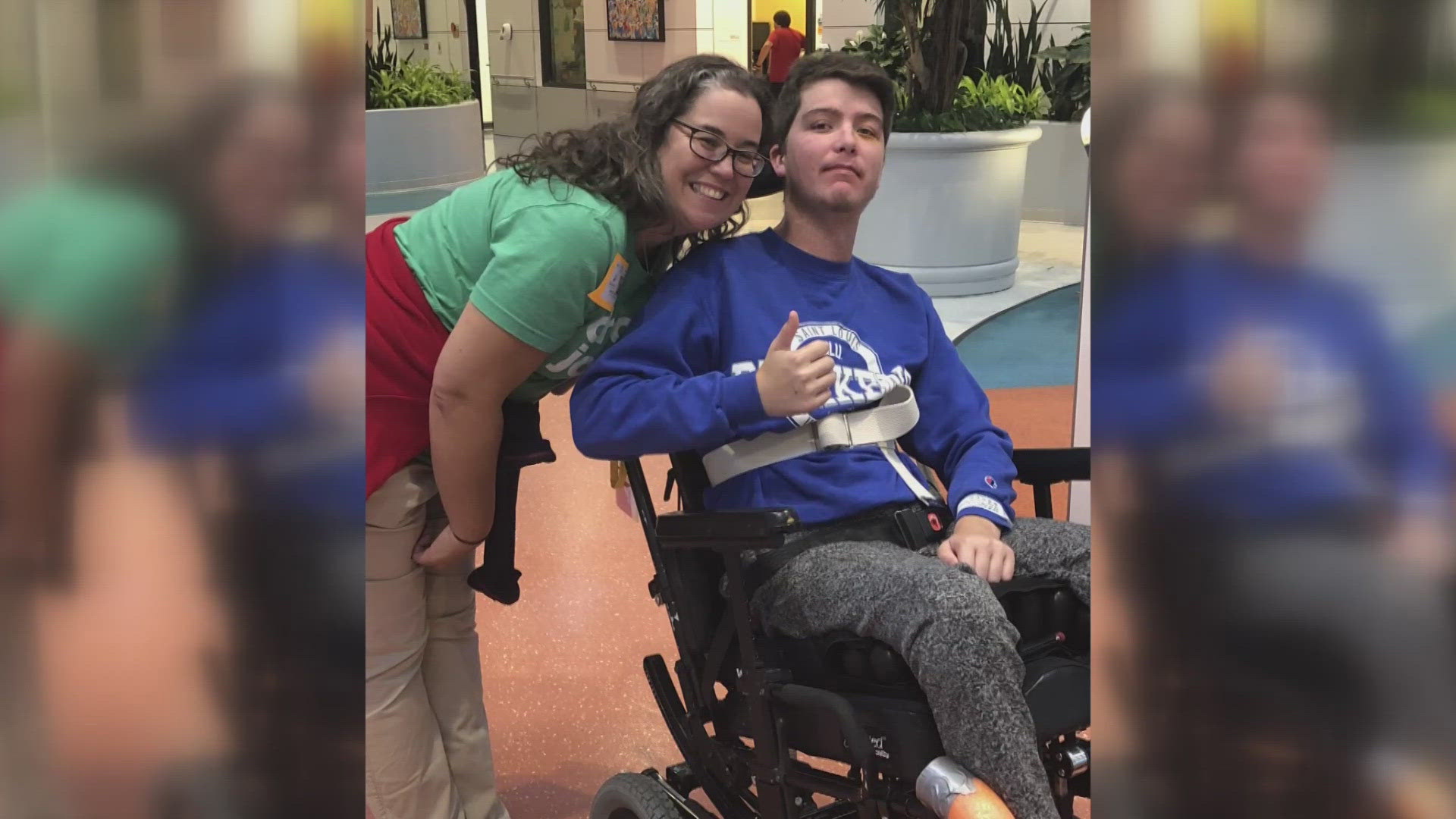SAINT LOUIS, Mo. — Michele Herndon knew something was wrong with her child, Mitchell. At 12 years old, Mitchell started having balance issues. By 13, he was losing gross motor skills.
Michele took her son to several doctors, and he endured countless medical tests. But no one could tell the Herndon family what was wrong with Mitchell. No one could give them a diagnosis.
“They were saying maybe this is just a fluke immune system thing and he's going to be fine,” Michele said.
But Mitchell wasn’t fine. Over the next five years, the undiagnosed illness would take his ability to walk, his eyesight and his hearing.
“If he had been diagnosed with Friedreich’s Ataxia or Muscular Dystrophy, where we would have patient data to say your life expectancy might be this,” Michele said.
“Even if it was going to be short, you would just know. Where we just had to live with the unknown," she said.
After struggling with the mystery for years, the Herndons found the Undiagnosed Diseases Network in 2017. Physicians at the UDN, based at Baylor College of Medicine, did full genome sequencing on Mitchell. They found a genetic variant in him and decided to test the variant in bugs.
“They took that variant and put it into fruit flies and created Mitchell fruit flies. And through that study they found the fruit flies couldn't fly and they had a reduced lifespan,” said Michele.
The Herndon family finally found the cause of Mitchell’s symptoms. But it was the first time doctors had discovered this genetic variant and there was no treatment.
Shortly after the discovery, Mitchell died at the age of 19.
Five years after Mitchell’s death, a path forward for undiagnosed patients is closer to home. Washington University is now a site for the Undiagnosed Diseases Network.
“We have doctors and scientists who are able to crack the most difficult cases,” said Dr. Brett Maricque, Assistant Professor of Genetics at Washington University School of Medicine.
Families dealing with mystery illnesses gathered at WashU this month to learn about genetic testing and resources.
“She got to the age of about 8 and her hair started falling out,” shared one mother at the event.
Michele, a registered nurse, was helping lead these discussions. Since Mitchell’s death, she has started working with the UDN’s Foundation.
“During Mitchell’s long journey I felt alone,” she said.
Her hope is through the local UDN site in St. Louis, she can help local families navigate the unknown and find an answer to their symptoms.
“Without a diagnosis, you don’t have a community. We want to make sure no one else feels that way,” she said.
Click here for more information on Washington University’s UDN site.
The UDN Foundation can also help families with resources.

